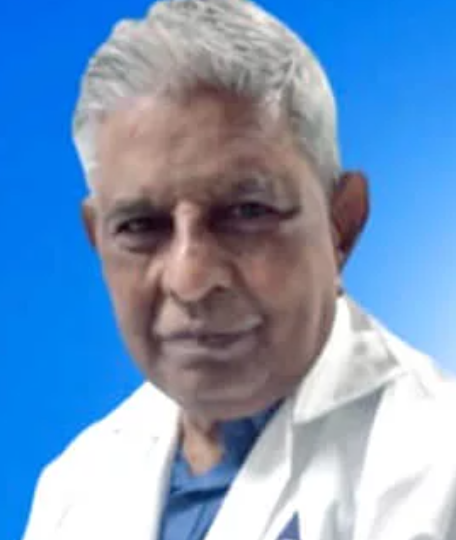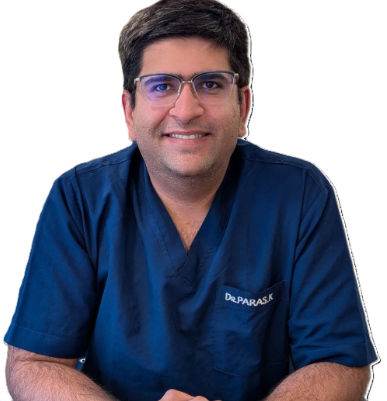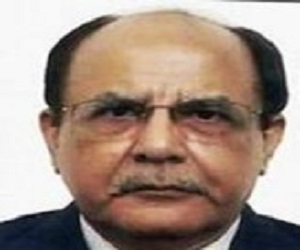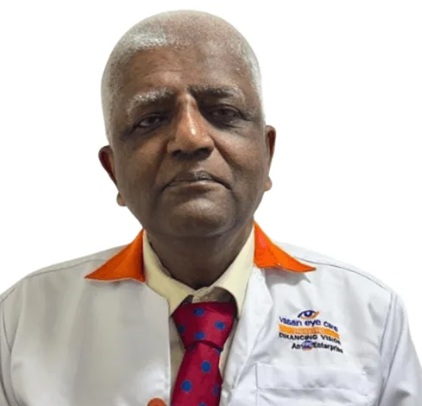Lasik and Diabetes

Quick Summary
- LASIK is a safe option for diabetic people who have well-managed blood pressure and do not suffer from diabetic retinopathy.
- However, diabetic people need to be more careful while getting LASIK as it has some potential complications for people with diabetes.
- Potential complications of surgery for diabetic people include: delayed healing and recovery time, increased risk of infection, complications with the blood vessels in the retina, and future need for glasses or LASIK correction due to unstable vision.
Every day, more and more people opt for sight-correcting laser eye surgery or LASIK. Many people wish to get LASIK to see better without glasses or contact lenses. It is a proven solution for several vision ailments. But for many years after the procedure was developed, doctors did not recommend LASIK for diabetic people. Luckily, times and technology have changed, making LASIK a safe option even for diabetic people.
So, to answer the question of whether LASIK is safe for people with diabetes: Yes, provided they fulfil the following conditions:-
- Have well-managed blood pressure
- Do not suffer from diabetic retinopathy
LASIK surgery is a common procedure with fewer than 48 hours of recovery time. However, diabetic people need to be more careful while getting LASIK as it has some potential complications for people with diabetes.
Complications of LASIK in Diabetic People
The risk of complications of LASIK is extremely minimal for the ideal candidates. But the risk of LASIK is greater in people with diabetes. Diabetes affects the body's blood sugar levels, compromising the immune system and having a negative impact on the healing after the surgery. Potential complications of surgery for diabetic people include:-
- Delayed healing and recovery time
- Increased risk of infection
- Complications with the blood vessels in the retina
- Future need for glasses or LASIK correction due to unstable vision
However, not all diabetic patients may experience these complications. Let us look at some factors that make you a good candidate for LASIK.
Factors Affecting LASIK Surgery for Diabetic Patients
High Blood Sugar
A high blood sugar level is one of the most common symptoms of diabetes. But did you know that elevated blood sugar can also increase the recovery time after LASIK? The elevated blood sugar level makes it difficult for wounds to heal, extending the recovery time. If the corneal healing is slow, it can cause infections, discomfort, and corneal thinning or damage. This is why surgeons do not prefer to perform LASIK surgery for people with diabetes. However, as long as you have managed your blood sugar level at least two to three months before the surgery, LASIK remains within the realms of possibility.
Diabetic Retinopathy
Diabetic retinopathy is a condition of the eye that develops when chronic high blood sugar level damages the small blood vessels in the eye. As a result, new blood vessels grow inside your retina. These thin, fragile blood vessels often bleed, leading to scar tissue formation and, in extreme cases, causing blindness.
Unfortunately, LASIK cannot reverse the vision loss caused by diabetic retinopathy. Diabetic retinopathy develops from the damage to the blood vessels in the retina, the back layer of the eye, while LASIK surgery only corrects the front part of the cornea. Before going ahead with the surgery, your doctor will perform some diagnostic tests to determine the cause of your vision problems. If it is not caused by diabetic retinopathy, you remain an ideal candidate for LASIK.
Fluctuating Vision
During LASIK surgery, the doctor changes the shape of your cornea to improve your vision, but it can become difficult for people with fluctuating blood sugar levels. The varying blood sugar levels can lead to fluctuations in your vision prescription, making it difficult for your doctor to determine how to reshape the cornea best. The doctor will recommend waiting until your blood sugar level is stable for at least six months to a year before the surgery.
What is Recovery Like?
The recovery of LASIK is longer for diabetic patients than for non-diabetic patients. Moreover, the risk of infections is greater, so it is important to monitor the patient during the recovery closely. Doctors usually prescribe steroid eye drops during the recovery process, but this can be problematic for diabetic patients. Why? Because absorption of steroids in the bloodstream can increase blood glucose. This is why doctors advise blocking the tear ducts while using these eye drops. You can use a simple technique called nasolacrimal occlusion or NLO to prevent eye drops from going into your bloodstream. This procedure helps you keep more medicine in the eye, making the eye drops more effective. Following is how you can apply the NLO technique:-
Step 1: Tilt your head back and use your middle finger to gently press the corner of your eye by the side of your nose.
Step 2: Use your index finger to pull down the lower lid and apply the eye drop.
Step 3: Let go of your lower lid after applying the eye drop. Close your eyes and keep your middle finger in place for at least 2 minutes. Lastly, use facial tissue to wipe off the extra drops on the eyelid.
Seek Medical Advice
Diabetes is no longer a contradiction for LASIK. People with diabetes are undergoing LASIK all over the world. You can get safe and effective LASIK surgery from a well-trained, experienced surgeon. However, you must be very particular about your diabetic medication, exercise, and diet to ensure a stable blood sugar level. Once your blood sugar level is adequately controlled, your eye care professional can advise you on the next steps and provide a detailed analysis of the potential complications of LASIK for diabetic people.
If you are considering LASIK but are not sure whether you are an ideal candidate or not, you can consult an eye specialist to get additional information about the surgery. With a team of 1500+ expert doctors, HexaHealth can be your ideal choice to determine candidacy for LASIK and discuss your options. So what are you waiting for? Contact a HexaHealth expert TODAY!


Last Updated on: 12 December 2023
Reviewer

Dr. Aman Priya Khanna
MBBS, DNB General Surgery, FMAS, FIAGES, FALS Bariatric, MNAMS General Surgery
13 Years Experience
Dr Aman Priya Khanna is a highly experienced and National Board–Certified Laparoscopic, GI, and Bariatric Surgeon with over 13 years of clinical expertise.
He is widely regarded as one of the best bariatric surgeons in Ahmedabad, ...View More
Author
HexaHealth Care Team
HexaHealth Care Team brings you medical content covering many important conditions, procedures falling under different medical specialities. The content published is thoroughly reviewed by our panel of qualified doctors for its accuracy and relevance.
Expert Doctors (10)
NABH Accredited Hospitals (5)
Latest Health Articles
Related Treatments























 Open In App
Open In App